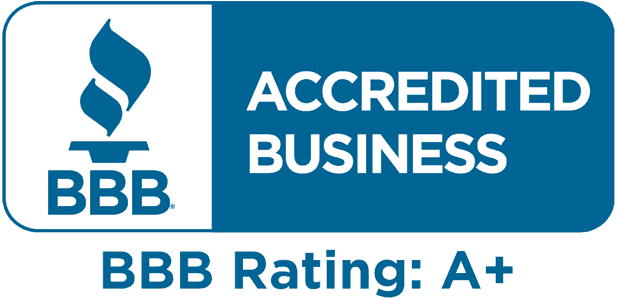As a Medicare patient, you’re entitled to privacy concerning who can see your medical records and under what conditions. But there are some occasions when you may want someone else to have access to your records and even be able to make decisions for you. Particularly in cases that involve a Medicare lien, you may need to grant your attorney the right to communicate with Medicare on your behalf in order to resolve a financial issue.
Let’s look at some of the situations in which you might want to grant someone access to your records and how to go about it.
WHAT IS MEDICARE BENEFICIARY PROOF OF REPRESENTATION?
First, what is Medicare beneficiary Proof of Representation (POR)? Essentially, it’s a document that authorizes someone to be your designated representative on a Medicare-related case. An attorney or another individual who has a valid POR will be able to access your records, receive copies of mail related to your case, and represent you in financial or legal disputes.
Situations that require Proof of Representation often involve a Medicare lien. A lien arises when Medicare makes a conditional payment for services that later turn out to be covered by another insurance policy, such as automobile insurance or a workers’ compensation policy.
For example, if you are involved in a personal injury case, Medicare may pay for your treatment while your insurance case is pending. But if your workers’ compensation policy or car insurance ends up covering your medical expenses, Medicare will want to be paid back.
These cases are handled by the Benefits Coordination and Recovery Contractor (BCRC), which will send you or your attorney a “demand letter” requesting to be reimbursed.
In order to streamline this process and make sure your attorney can properly handle your case, you will need to submit a Proof of Representation form to the BCRC. This lets the BCRC know that they can provide your attorney with personal information related to the case. Your attorney will be able to receive mail and request documents directly from the BCRC on your behalf.
Your attorney will try to keep the amount you’re required to repay Medicare to a minimum, so you can keep as much of the settlement money as possible. They’ll make sure that you meet any deadlines provided by the BCRC and can begin an appeals process if necessary.
You should fill out the POR form as soon as your attorney requires it so there are no delays in the settlement stage of your case.
PROOF OF REPRESENTATION VS. CONSENT TO RELEASE
There are two main authorization documents that may be required during a personal injury case. In addition to Proof of Representation, you may need to sign a Consent to Release form. Unlike the POR, the Consent to Release form does not grant the individual the right to represent you.
You’ll use the Consent to Release form if your insurer or workers’ compensation entity needs access to material related to the case, such as conditional payment information. Be sure to fill out the right form for each situation. If you provide your attorney with the Consent to Release form but not a POR, they won’t be able to communicate with the BCRC on your behalf.
Keep in mind that both the Consent to Release form and POR are limited in scope. The POR grants your attorney the right to act on your behalf only in regards to the case. It doesn’t grant them the right to make decisions for you related to your medical needs or health status.
If you want to give a spouse or family member the power to make decisions about your health care, that’s an entirely different process. You’ll need to make them an authorized representative instead. This process is often used in situations in which a Medicare patient is suffering from a mental condition that leaves them unable to make decisions on their own.
WHEN YOU NEED IT
The need for Proof of Representation arises most often in personal injury cases. According to the Centers for Medicare and Medicaid Services, “Medicare does not pay for items or services to the extent that payment has been, or may reasonably be expected to be, made through a liability insurer … no-fault insurer or workers’ compensation entity.”
This means that any other insurance coverage you have may supersede your Medicare claim. Medicare only pays for your care when you are not covered by additional insurance, including settlements with a third-party insurer or workers’ compensation plan.
If you are involved in a pending case or settlement related to a Medicare claim, you’re required to report it to the Benefits Coordination & Recovery Center (BCRC). They will investigate to find out whether the payment made by Medicare was appropriate. If the payment should have been made by another insurer, the BCRC will attempt to recover those costs. They will send you a Conditional Payment Letter (CPL) outlining the amount they are seeking to recover.
If you have an attorney, you will need to authorize them to receive copies of the CPL and any other documents related to the case. With valid Proof of Representation, your attorney will be able to communicate directly with Medicare for you and negotiate on your behalf.
The sooner you provide a POR, the better. If you don’t pay back the debt or file a dispute within the timeframe outlined in the letter, you’ll be charged interest, so it’s a good idea to provide your attorney with the authorization as soon as possible to avoid any delays in handling the case.
You may also choose to provide your insurer with copies of the Conditional Payment Letter and other communications related to the case by providing a Consent to Release form. According to Medicare, “It is in the best interest of both sides to have the most accurate information available regarding the amount owed to the BCRC.” But remember, don’t provide your insurer with Proof of Representation unless you also want them to communicate with Medicare for you.
You may also need to provide Proof of Representation if a Medicare beneficiary has died before a settlement has been reached or a conditional payment case has been resolved. In this case, the beneficiary’s estate will need to provide a new POR to the attorney in question, even if the beneficiary had already provided a POR related to the case before they died.
ACTIONS AVAILABLE TO USERS WITH MEDICARE BENEFICIARY PROOF OF REPRESENTATION
A valid POR allows your attorney to log into the online portal and access material related to your case. An attorney or another individual with Proof of Representation will be able to:
- Request copies of the Conditional Payment Letter (by mail or email)
- View authorizations and claims
- View or update a Notice of Settlement
- Submit a Waiver Request or Compromise Request
- Calculate conditional payment amounts and begin the payment process
- Provide a Notice of Anticipated Settlement
- Request a Dispute Denial letter
They won’t be able to make decisions about your personal health care and financial matters, but they will be able to receive personal documents related to the case. This includes the costs and details of any services you received that were covered by the conditional payment.
HOW TO APPLY FOR MEDICARE BENEFICIARY PROOF OF REPRESENTATION
Submitting the necessary documents for Proof of Representation is a straightforward process. Your attorney may have the forms on hand, or you can download them from Medicare.
You can submit and update any documents related to your case using the Medicare Secondary Payer Recovery Portal. Upload your Consent to Release and/or Proof of Representation forms directly through the online portal, or mail them to the BCRC. Ask your attorney if you’re unsure which forms to fill out or where to send them. Provide them a copy of the documents so they can maintain them for their records and provide them to the BCRC if necessary.
Once you’ve submitted Proof of Representation, your attorney will be able to access your case from the online portal and communicate directly with Medicare on your behalf. Remember, the POR is valid only for this particular case and not for any cases that arise in the future. You will need to submit another POR if you change attorneys or are involved in a new settlement.
HOW WE CAN HELP
Receiving a Conditional Payment Letter and navigating a Medicare payment dispute can be a stressful process, particularly in the wake of an accident or personal injury. It can be hard to know how much power to grant to an attorney or third-party insurer.
If you’re unsure whether to provide Proof of Representation or just need help figuring out which forms to fill out, you can always reach out to the team at the Medicare Store.
We have experience dealing with Medicare cases of all kinds and can make sure you’re on the right track with your Medicare settlement. Just fill out our contact form and one of our licensed insurance agents will schedule a 30-minute phone consultation or an in-person visit.



